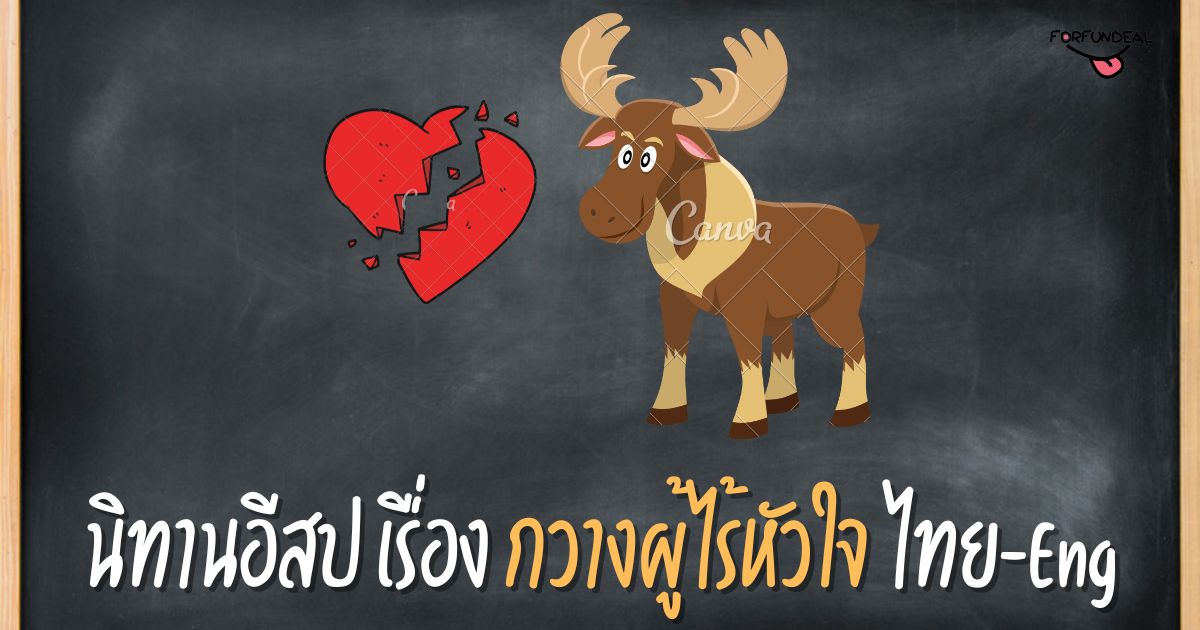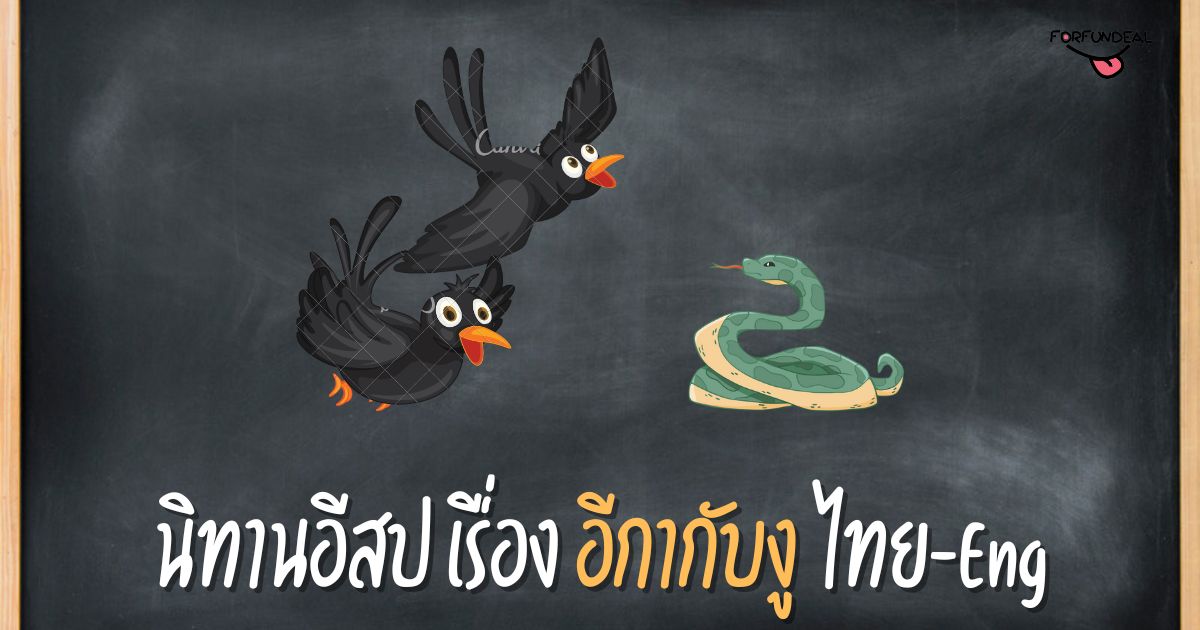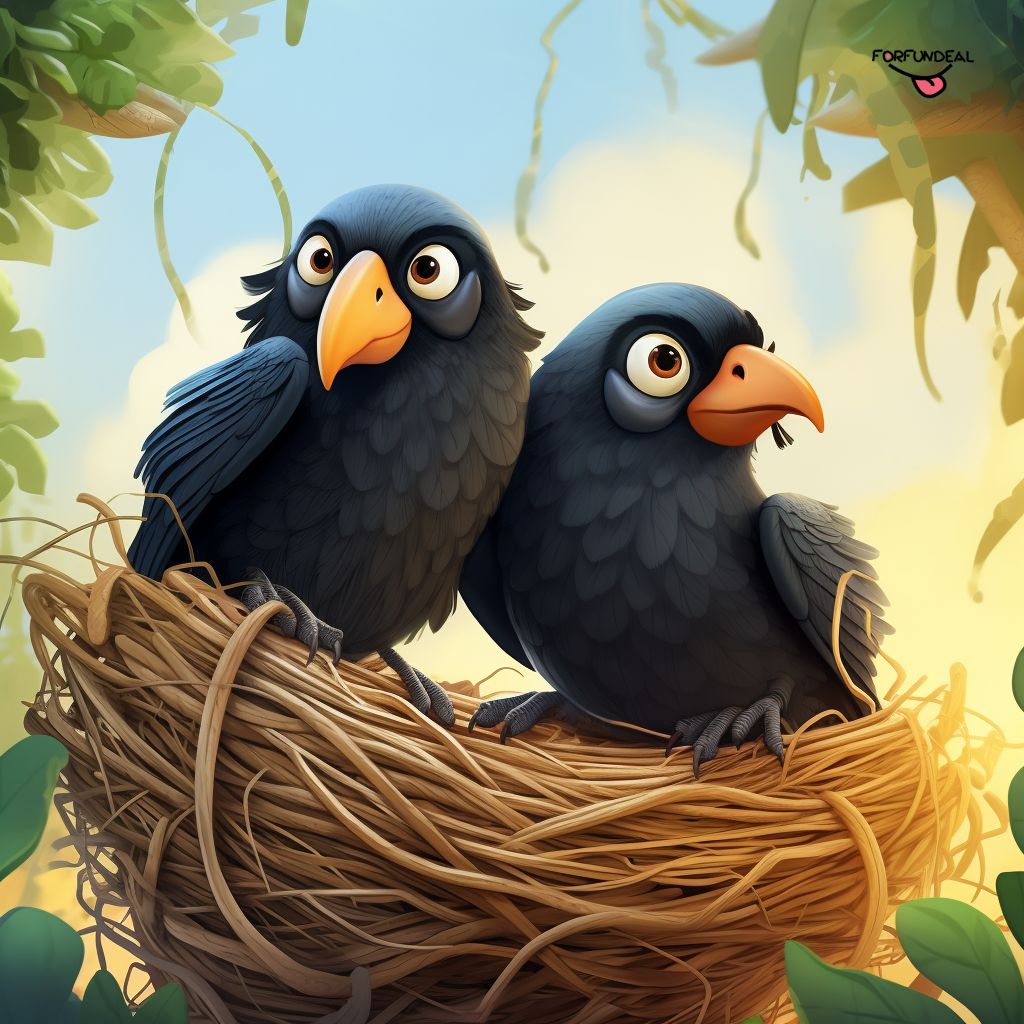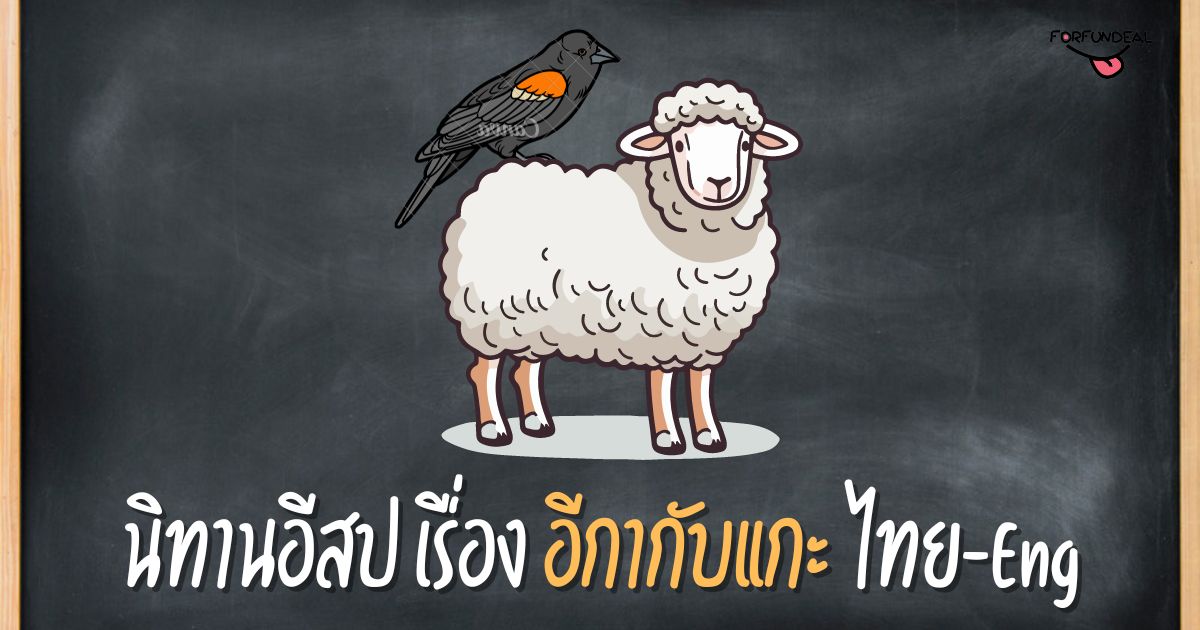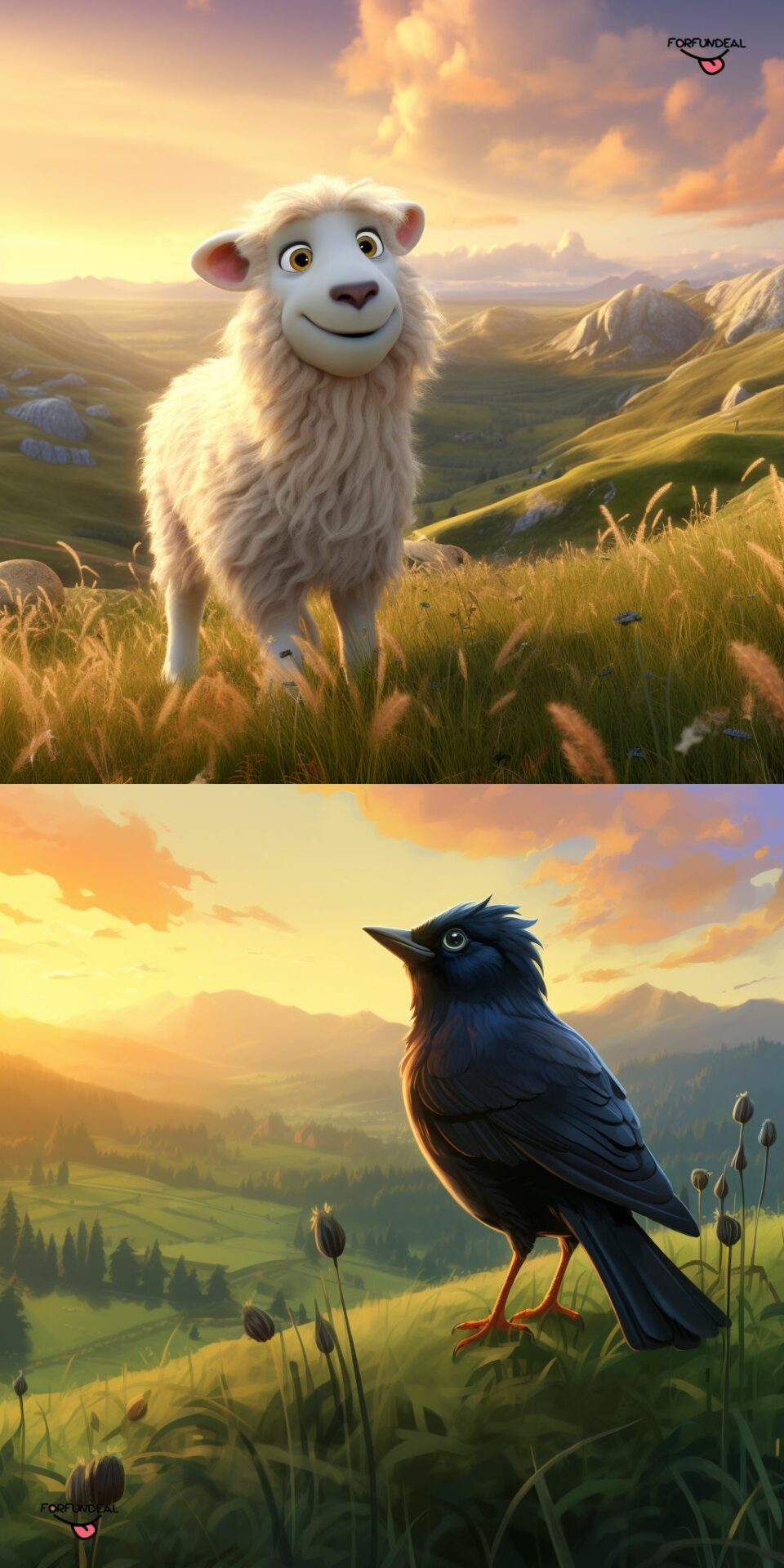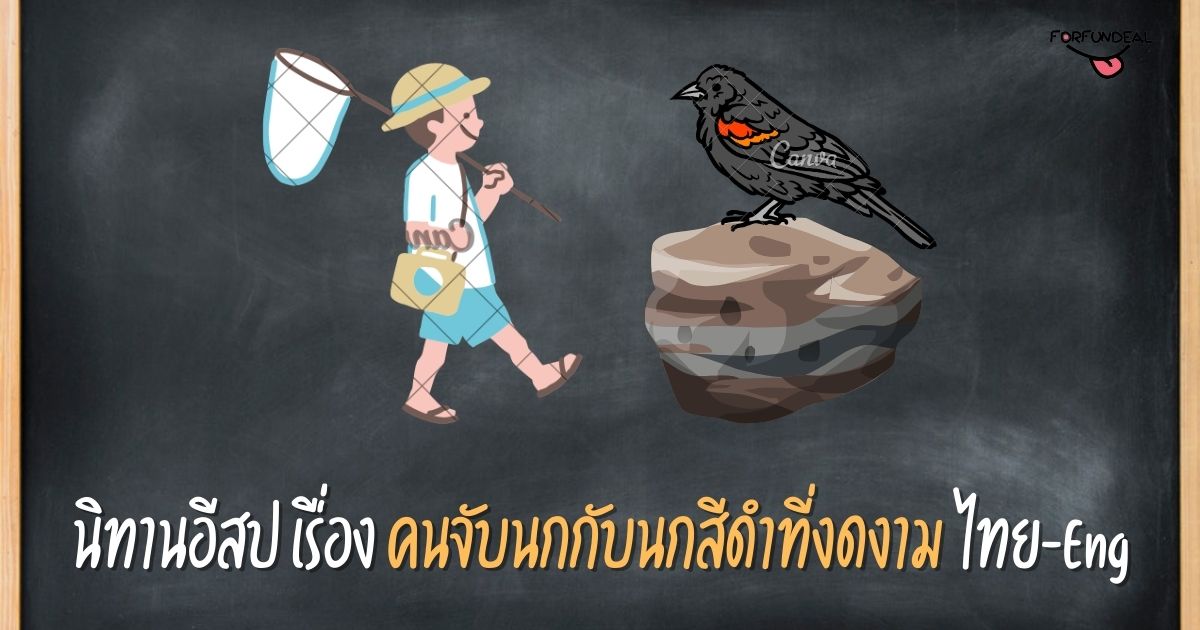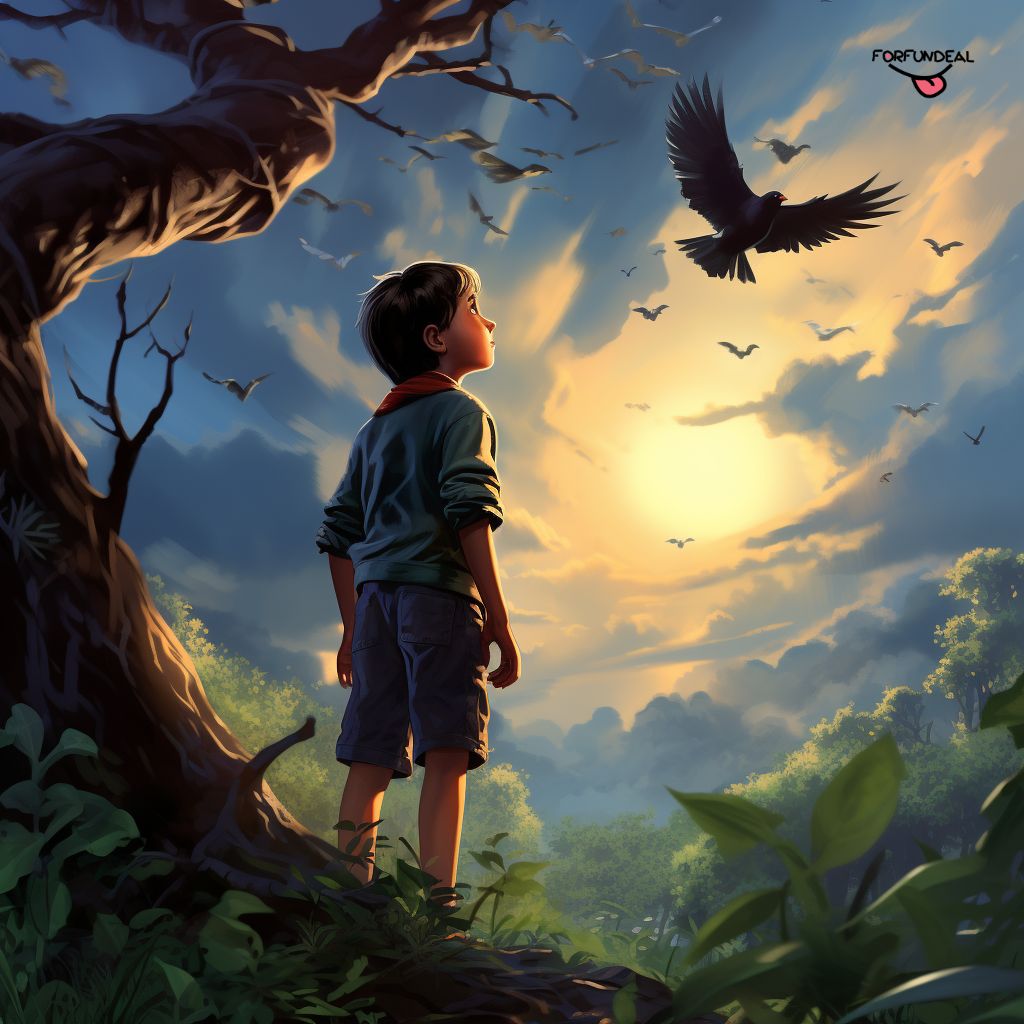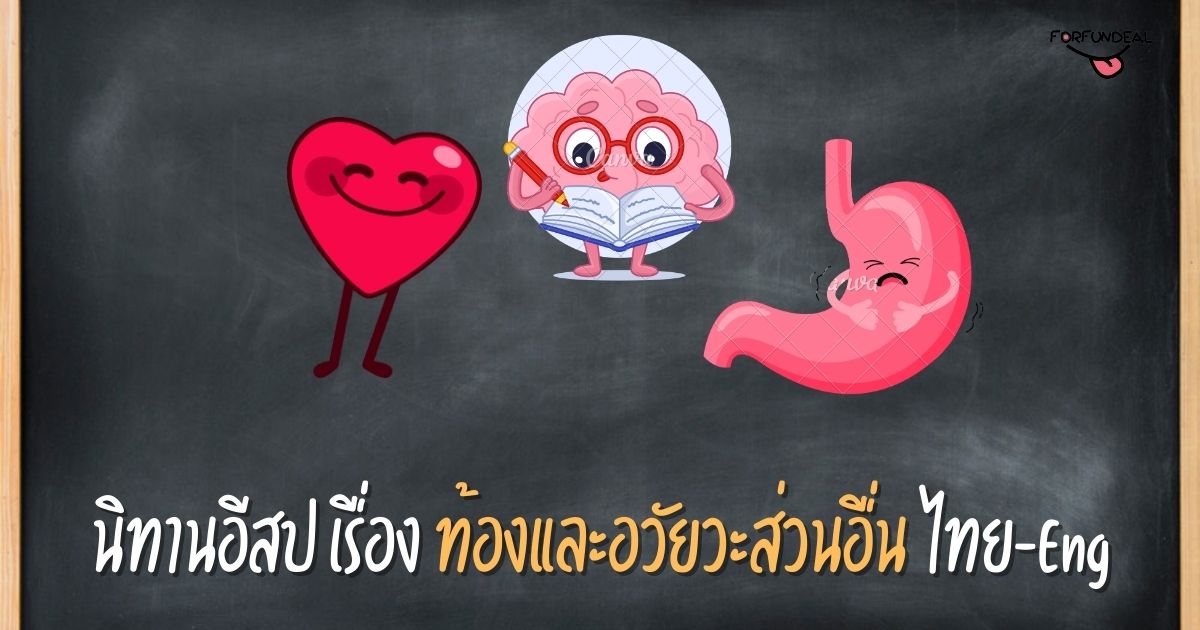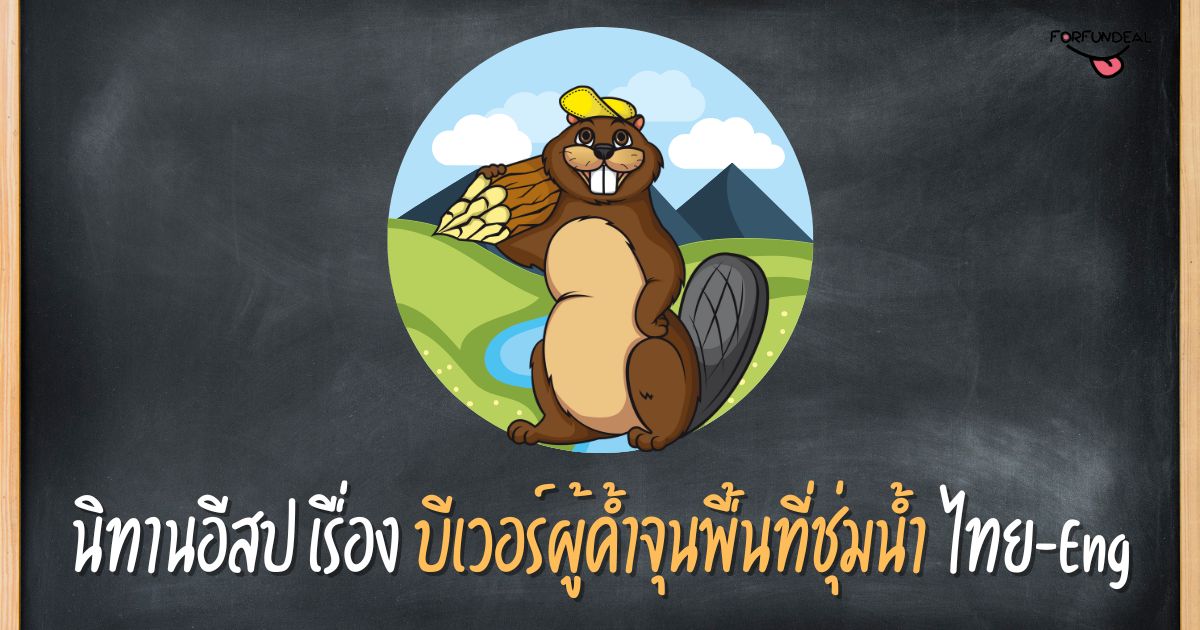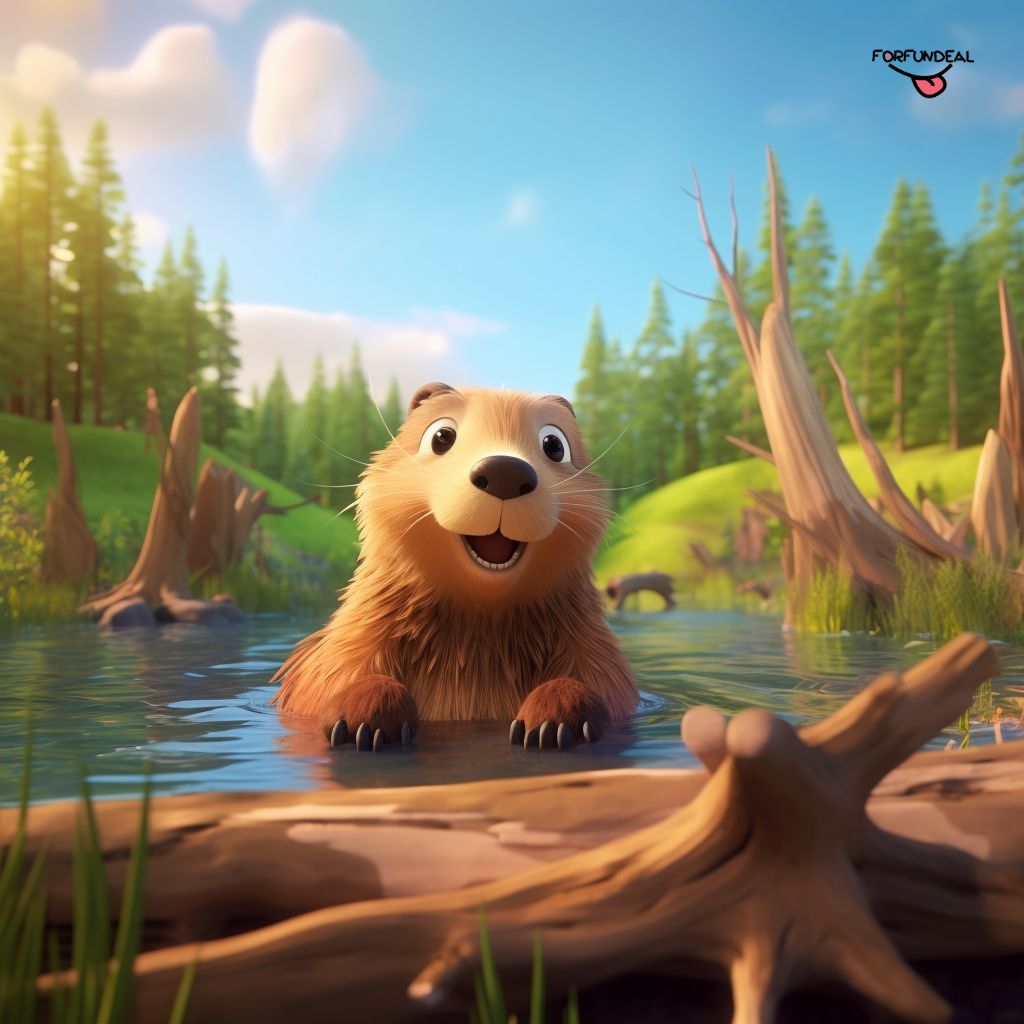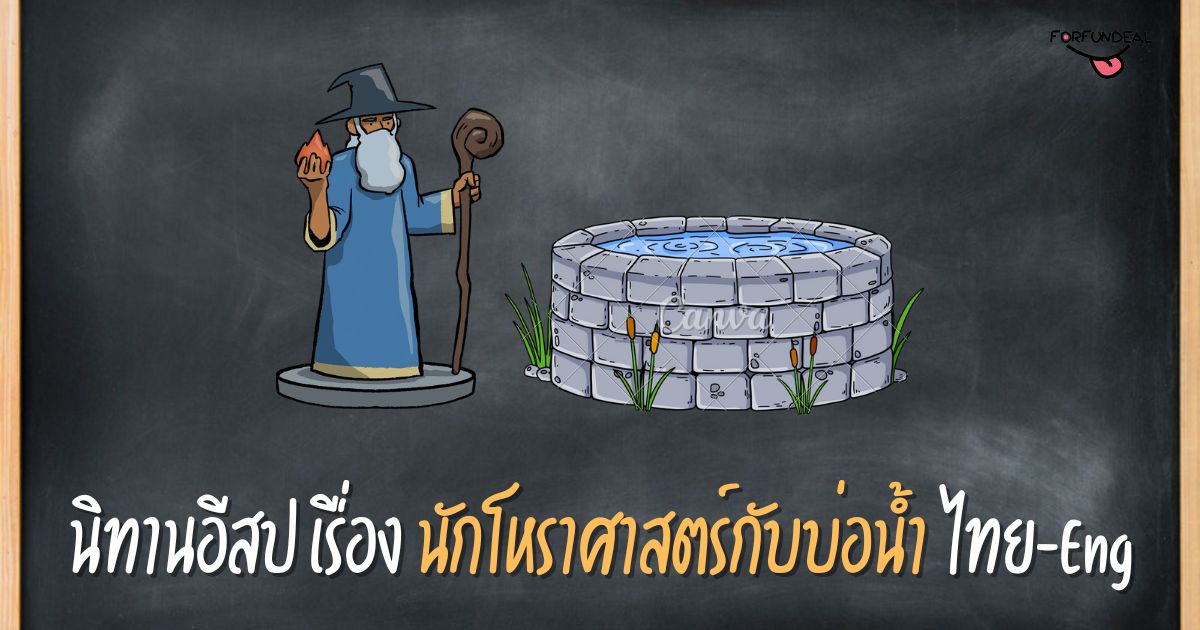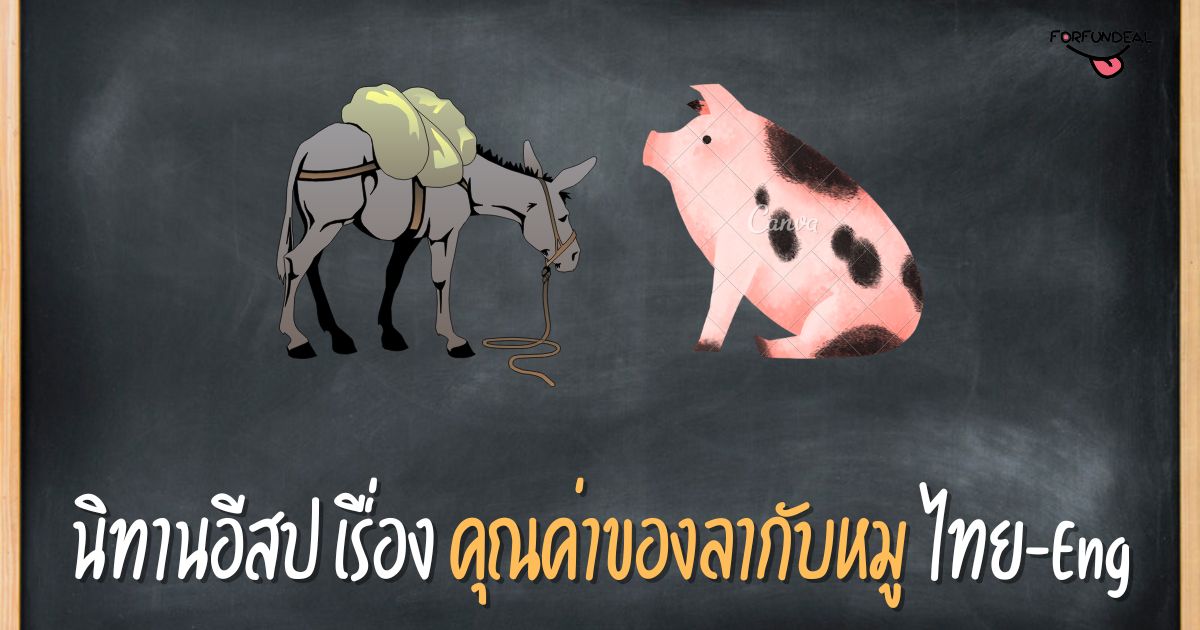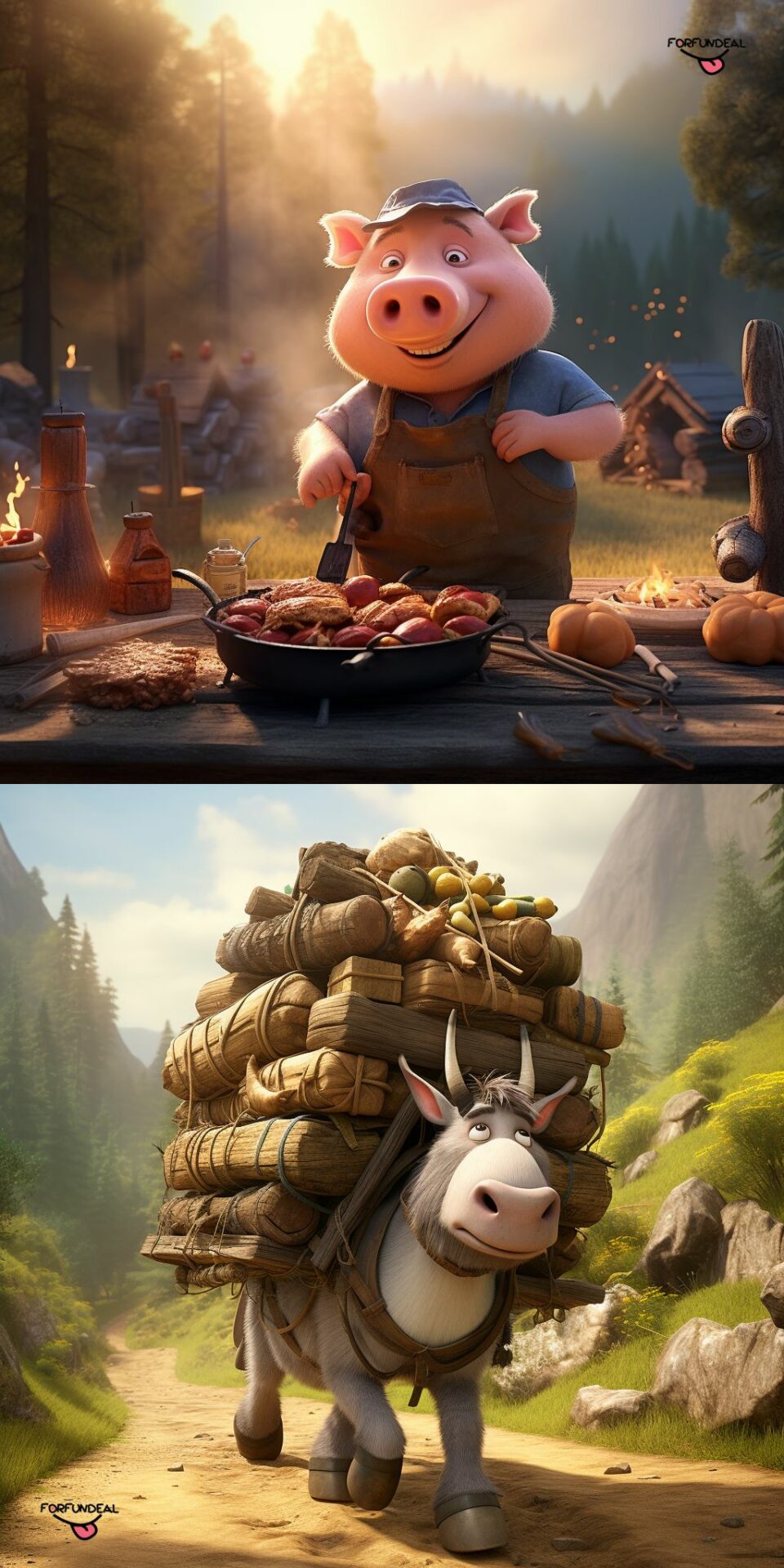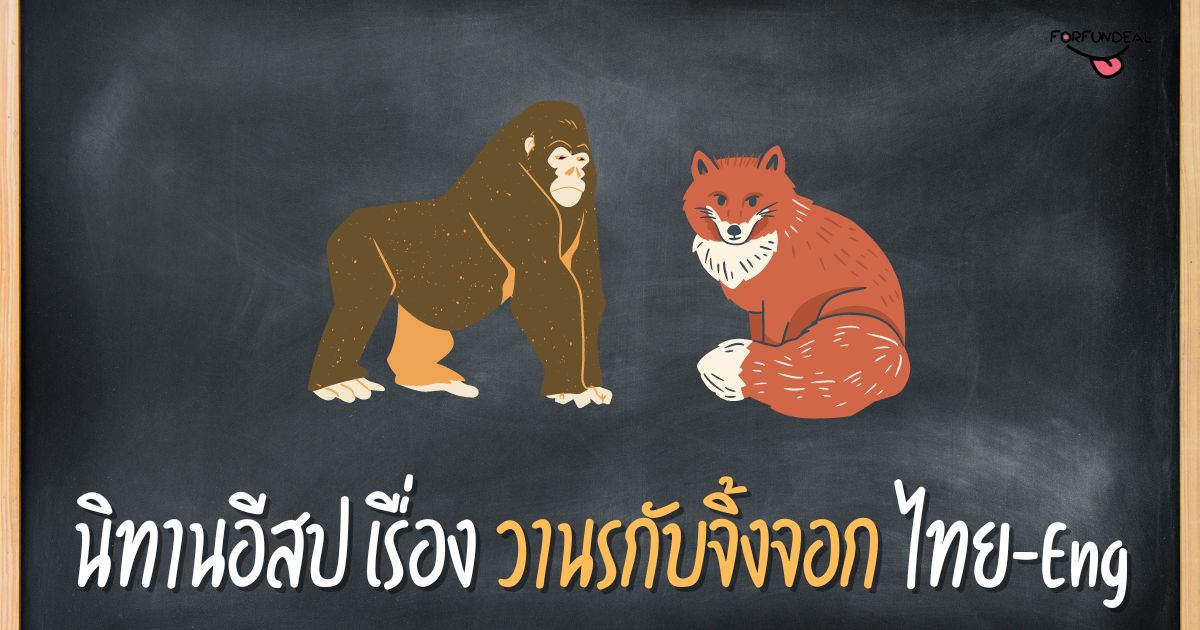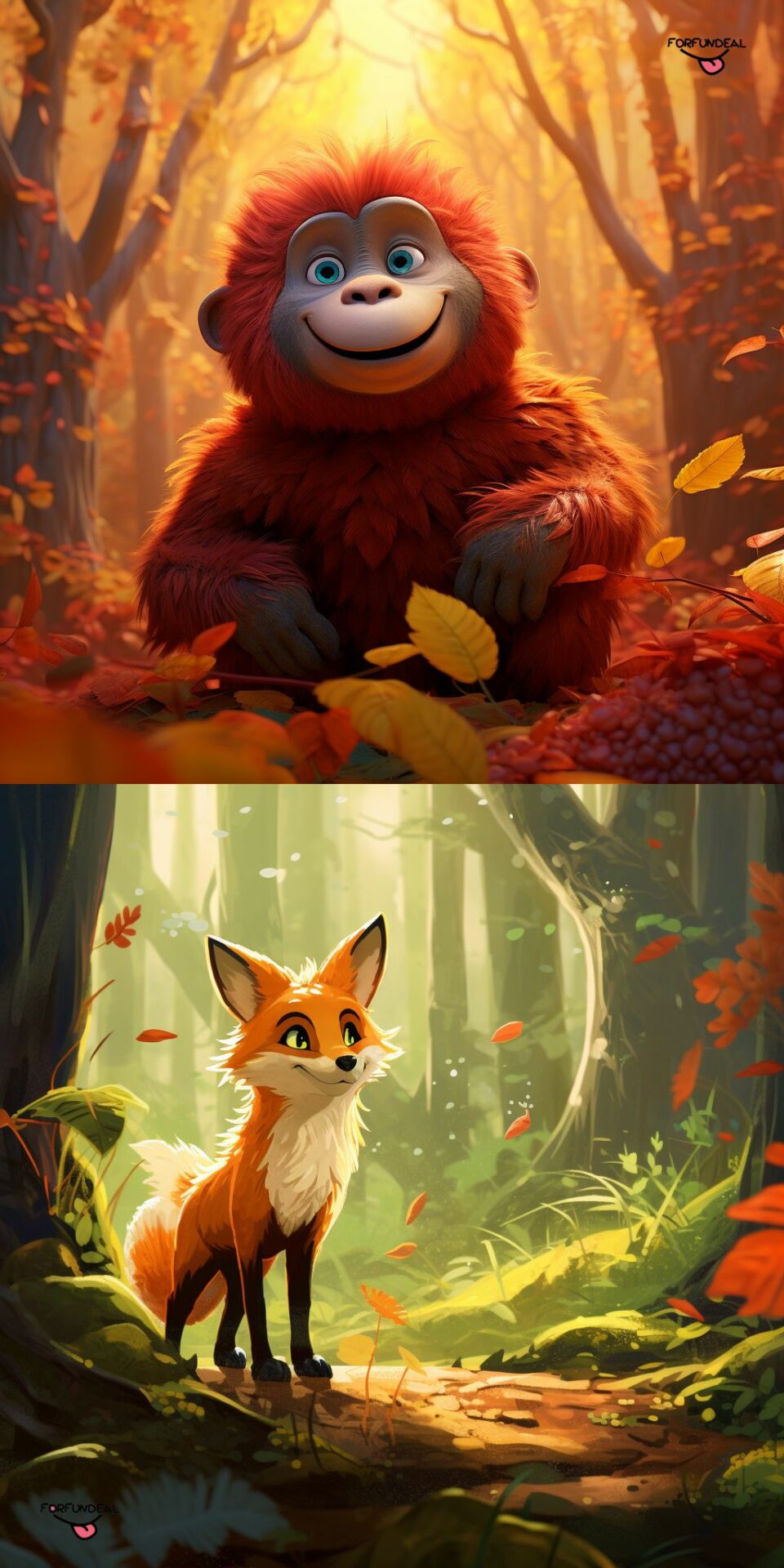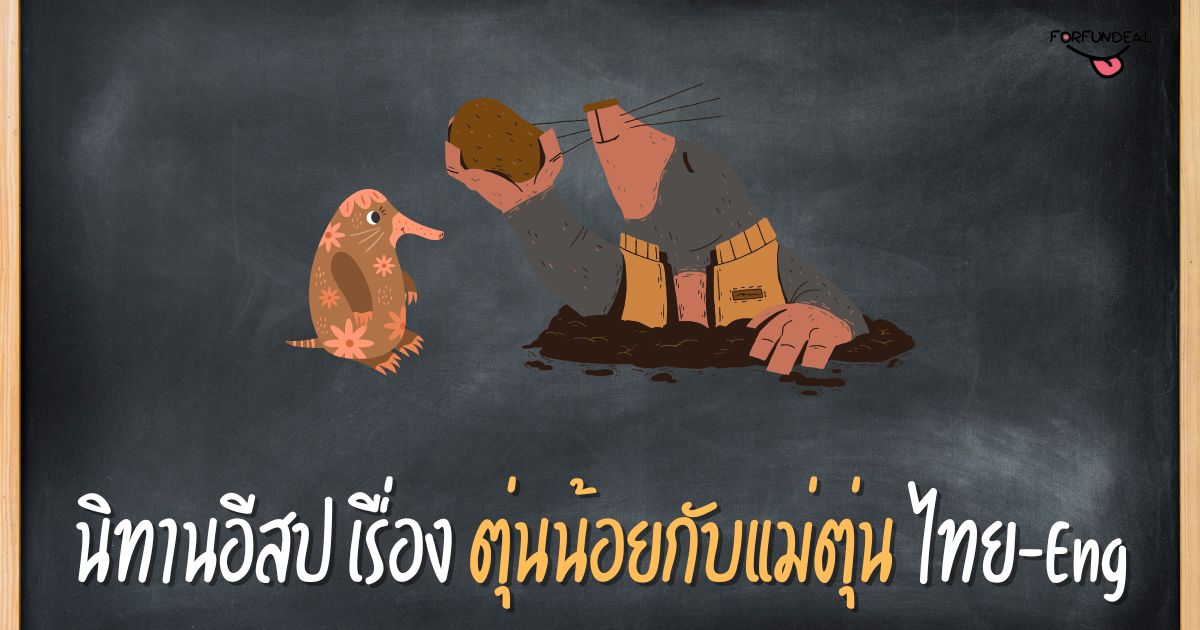“กวางผู้ไร้หัวใจ” เป็นนิทานอีสปที่สอนเราถึงความสำคัญของความรู้สึก อารมณ์ และเหตุผลจริงๆ ของการมีหัวใจที่งดงาม และยังสอนเรื่องการเปลี่ยนแปลงและการเติบโต
นิทานอีสปเรื่องกวางผู้ไร้หัวใจ
กาลครั้งหนึ่งนานมาแล้วในป่าที่เต็มไปด้วยต้นไม้สูงใหญ่และนกร้องเจื้อยแจ้ว มีกวางอาศัยอยู่ กวางตัวนี้แตกต่างจากตัวอื่นๆ เพราะมันไร้หัวใจ แม้ว่าจะมีร่างกาย แต่ก็ไม่สามารถรู้สึกถึงอารมณ์ใดๆ เช่น ความสุข ความเมตตา หรือความรัก
Once upon a time, in a forest filled with tall trees and chirping birds, there lived a deer. This deer was different from the others, for it didn’t have a heart. Even though it had a body, it couldn’t feel any emotions like happiness, kindness, or love.
ทุกวัน สัตว์อื่นๆ ในป่าจะเล่นด้วยกัน แบ่งปันอาหาร และช่วยเหลือซึ่งกันและกัน แต่กวางไร้หัวใจจะเฝ้ามองอยู่ห่างๆ โดยไม่รู้สึกอะไร มันไม่ได้ร่วมสนุกหรือช่วยเหลือใครเพราะมันไม่เข้าใจความหมายของการดูแล
Every day, the other animals in the forest would play together, share food, and help each other. But the heartless deer would watch from a distance, feeling nothing. It didn’t join in the fun or help anyone, because it didn’t understand what it meant to care.
วันหนึ่ง นกน้อยขนหลากสีบินมาหากวางใจร้ายแล้วถามว่า “เจ้าอยู่ห่างเราทำไม เจ้าไม่อยากเล่นเป็นเพื่อนกับพวกเราหรือ”
One day, a little bird with colorful feathers flew up to the heartless deer and asked, “Why do you stay away from us? Don’t you want to play and be friends?”
กวางไร้หัวใจตอบว่า “ข้าไม่มีหัวใจ ข้าไม่รู้จะเป็นเพื่อนกับเจ้าหรือมีความสุขได้ยังไง”
The heartless deer replied, “I don’t have a heart, so I don’t know how to be friends or feel happy.”
นกน้อยครุ่นคิดอยู่ครู่หนึ่งแล้วพูดว่า “ถึงเจ้าไม่มีหัวใจ เจ้าก็ยังเรียนรู้ที่จะเป็นคนมีเมตตาได้ ความเมตตามาจากการปฏิบัติต่อผู้อื่นในแบบที่คุณต้องการได้รับการปฏิบัติ”
The little bird thought for a moment and then said, “Even though you don’t have a heart, you can still learn to be kind. Kindness comes from treating others the way you’d like to be treated.”
กวางใจร้ายอยากรู้อยากเห็น “ข้าจะเรียนรู้ที่จะเป็นคนใจดีได้อย่างไร ถ้าข้าไม่มีหัวใจ”
The heartless deer was curious. “How do I learn to be kind if I don’t have a heart?”
เจ้านกน้อยยิ้ม “เริ่มด้วยการช่วยเหลือผู้อื่น แบ่งปันอาหารแก่ผู้ที่หิวโหย ฟังเมื่อมีคนต้องการพูด และทำสิ่งดีๆ แม้ว่าคุณจะไม่เข้าใจความรู้สึกก็ตาม ในไม่ช้าเจ้าจะเห็นว่าการมีน้ำใจทำให้ทุกคนมีความสุข รวมทั้งเจ้า”
The little bird smiled. “Start by helping others. Share your food with those who are hungry, listen when someone needs to talk, and do good things even if you don’t understand the feelings. Soon, you’ll see that being kind makes everyone happy, including you.”
และนกฮูกฉลาดมองกวางอย่างใจดีและพูดว่า “กวางที่รัก เจ้าขาดสิ่งสำคัญไป หัวใจ หัวใจคือสิ่งที่ทำให้เรารู้สึกถึงอารมณ์ต่างๆ มากมาย เป็นสิ่งที่ทำให้เราดูแลเพื่อนของเรา เพลิดเพลินกับความสวยงามรอบตัวเรา และพบความสุขในสิ่งเล็กน้อย”
And the wise owl looked at the deer kindly and said, “Dear deer, you are missing something important – a heart. A heart is what makes us feel all kinds of emotions. It’s what makes us care for our friends, enjoy the beauty around us, and find joy in the little things.”
กวางรู้สึกประหลาดใจที่ได้ยินสิ่งนี้ มันตระหนักว่าแม้มันจะมองเห็นความงามของป่า แต่มันก็ไม่สามารถชื่นชมมันได้อย่างแท้จริงหากไม่มีหัวใจ มันถามนกฮูกว่า “ข้าขอหัวใจได้ไหม”
The deer was surprised to hear this. It realized that while it could see the beauty of the forest, it couldn’t truly appreciate it without a heart. It asked the owl, “Can I get a heart?”
นกฮูกยิ้มและตอบว่า “เจ้าไม่มีทางได้หัวใจ แต่เจ้าสามารถเรียนรู้ที่จะเข้าใจและซาบซึ้งในอารมณ์ ใช้เวลากับสัตว์อื่นๆ ฟังเรื่องราวของพวกเขา และช่วยเหลือพวกเขาเมื่อพวกเขาต้องการ เมื่อเวลาผ่านไป เจ้าอาจเริ่มรู้สึกถึงบางสิ่งที่พิเศษในตัวเจ้า”
The owl smiled and replied, “You cannot physically get a heart, but you can learn to understand and appreciate emotions. Spend time with the other animals, listen to their stories, and help them when they need it. Over time, you might start to feel something special inside you.”
กวางไร้หัวใจตัดสินใจลองดู มันเริ่มแบ่งปันอาหารกับกระรอกและกระต่าย และมันช่วยสัตว์เหล่านั้นซ่อมแซมบ้านของพวกมัน แม้จะไม่ได้รู้สึกมีความสุขเหมือนคนอื่นๆ แต่เห็นรอยยิ้มบนใบหน้าก็สัมผัสได้ถึงความอบอุ่นภายในใจ
The heartless deer decided to give it a try. It started sharing its food with squirrels and rabbits, and it helped the animals fix their homes. Even though it didn’t feel happiness like others, it could see the smiles on their faces and feel a warmth inside.
มันเล่นกับกระรอก และฟังเรื่องราวของเต่าแก่ที่ฉลาด กวางเริ่มรู้สึกถึงความอบอุ่นที่เติบโตภายในอย่างช้าๆ ซึ่งเป็นสิ่งที่ไม่เคยรู้สึกมาก่อน
He played with the squirrels, and listened to the stories of the wise old turtle. Slowly, the deer started to feel a warmth growing inside – something it had never felt before.
เมื่อวันเวลาผ่านไปเป็นสัปดาห์ กวางเริ่มรู้สึกมีความสุขเมื่อแสงอาทิตย์ส่องผ่านต้นไม้หรือเมื่อเห็นสายรุ้งหลังฝนตก มันรู้สึกเจ็บปวดเมื่อเห็นสัตว์บาดเจ็บ และเริ่มเข้าใจความหมายของการดูแลผู้อื่น
As days turned into weeks, the deer began to feel happiness when the sun peeked through the trees or when it saw a rainbow after the rain. It felt a pang of sadness when it saw an injured animal, and it started to understand what it meant to care for others.
เวลาผ่านไป สิ่งมหัศจรรย์ก็เกิดขึ้น ยิ่งกวางไร้หัวใจทำใจดีเท่าไหร่ มันก็ยิ่งเริ่มรู้สึกแปลกๆ ในอก คล้ายเสียงหัวใจเต้น ราวกับว่าหัวใจกำลังเติบโตอยู่ข้างใน
As time passed, something magical happened. The more the heartless deer did kind things, the more it started to feel a strange sensation in its chest – something like a heartbeat. It was as if a heart was growing inside it.
ตั้งแต่วันนั้นเป็นต้นมา กวางที่มีหัวใจเพิ่งค้นพบก็เล่นกับเพื่อนในป่า แบ่งปันอาหาร และแบ่งปันความสุขในทุกที่ที่มันไป มันได้เรียนรู้ว่าแม้คุณไม่ได้เริ่มต้นด้วยหัวใจ คุณก็ยังหามันเจอได้ด้วยการมีน้ำใจและห่วงใยกัน
From that day on, the deer with a newfound heart played with its forest friends, shared its food, and spread happiness wherever it went. It had learned that even if you don’t start with a heart, you can still find one by being kind and caring.
ดังนั้น กวางจึงเรียนรู้ว่าการมีหัวใจไม่ได้เกี่ยวกับการมีอวัยวะ แต่เกี่ยวกับการเข้าใจและความรู้สึกทางอารมณ์ ตั้งแต่วันนั้นเป็นต้นมา กวางก็ท่องไปในป่าด้วยความชื่นชมต่อโลกรอบตัวและเพื่อนที่มันได้สร้างขึ้น
And so, the deer learned that having a heart wasn’t about having a physical organ, but about understanding and feeling emotions. From that day on, the deer roamed the forest with a newfound appreciation for the world around it and the friends it had made.
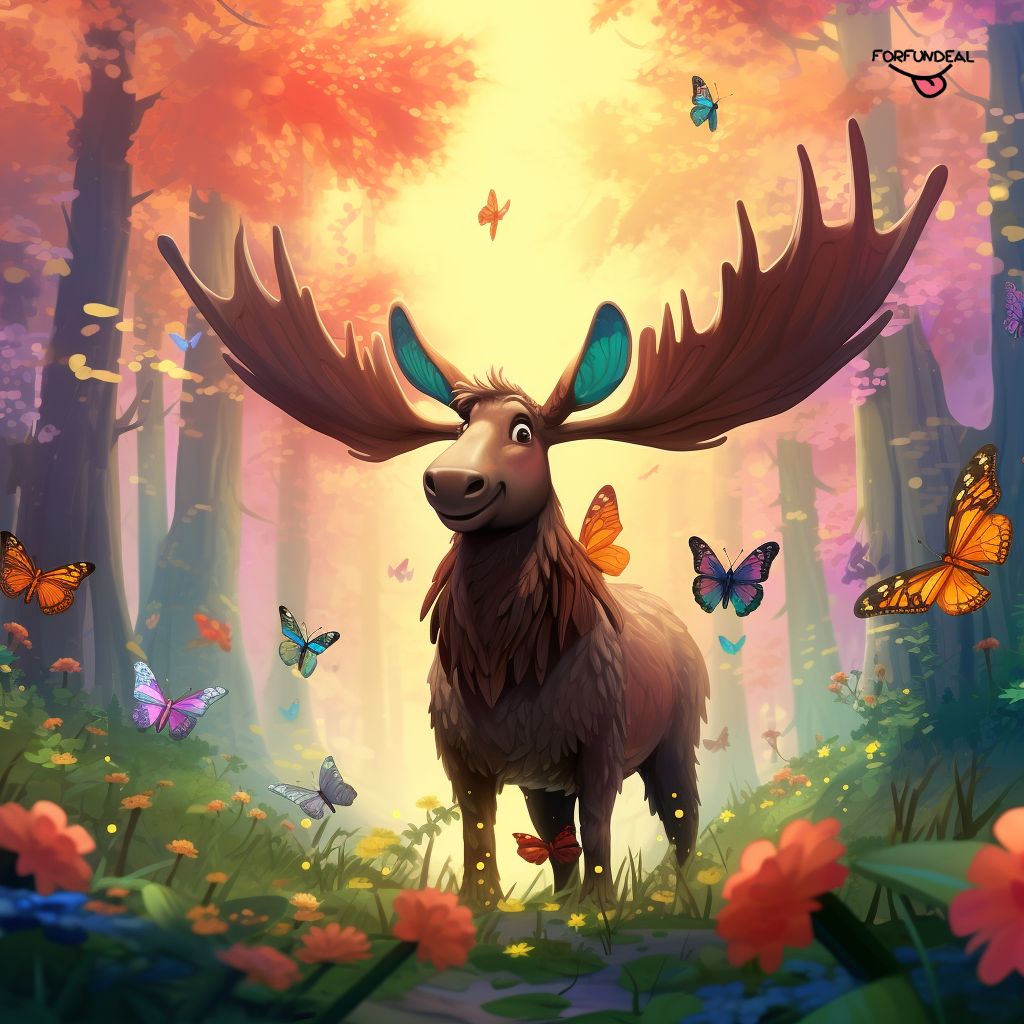
นิทานเรื่องนี้สอนให้รู้ว่า
“หัวใจคือสิ่งที่สื่อถึงอารมณ์ มันทำให้เรามีชีวิต… ความมีน้ำใจและความเห็นอกเห็นใจสามารถปลุกความสามารถในการแสดงอารมณ์และจิตใจที่ห่วงใย แม้กระทั่งในผู้ที่ในตอนแรกอาจดูเหมือนไร้หัวใจก็ตาม”
- ความสำคัญของความเมตตา: นิทานเรื่องนี้สอนเรา วาความเมตตาเป็นสิ่งสำคัญ แม้ว่าเราจะไม่รู้สึกถึงอารมณ์ก็ตาม การทำดีเพื่อผู้อื่นจะทำให้เราและคนรอบข้างมีความสุข
- ความเห็นอกเห็นใจ: การเรียนรู้ว่าการช่วยเหลือผู้อื่นและการมีเมตตา เราสามารถเข้าใจความรู้สึกของผู้อื่นและทำให้พวกเขารู้สึกดีขึ้น
- เรียนรู้จากผู้อื่น: กวางไร้หัวใจเรียนรู้ที่จะเป็นคนใจดีโดยเฝ้าดูการกระทำของผู้อื่นและลองทำสิ่งใหม่ๆ เราสามารถเรียนรู้จากสิ่งนี้ได้เช่นกัน โดยการสังเกตว่าคนรอบข้างใจดีและพยายามทำเช่นเดียวกันอย่างไร
- เติบโตด้วยความดี: เช่นเดียวกับกวางไร้หัวใจที่ปลูกใจด้วยการทำสิ่งที่ดี สอนเราให้เข้าใจว่าพวกเขาสามารถเป็นคนดีขึ้นได้ด้วยการทำความดี
- มิตรภาพและความสุข: เรื่องราวแสดงให้เห็นว่าการผูกมิตรและนำความสุขมาสู่ผู้อื่นเป็นความรู้สึกที่ยอดเยี่ยม และมันก็คุ้มค่าที่จะเรียนรู้ที่จะเป็นคนใจดีแม้ว่ามันจะยากในตอนแรกก็ตาม
- เข้าใจอารมณ์: เรื่องราวของกวางที่ไม่มีหัวใจเราเกี่ยวกับอารมณ์และความสำคัญของการเข้าใจและรู้สึกถึงอารมณ์เหล่านั้น แสดงให้เห็นว่าอารมณ์ต่างๆ เช่น ความสุข ความเศร้า ความห่วงใยผู้อื่นทำให้ชีวิตมีความหมาย
- ชื่นชมธรรมชาติ: การเดินทางของกวางเพื่อชื่นชมความงามของป่าทำให้เราเห็นความสำคัญของการสังเกตและเพลิดเพลินกับความมหัศจรรย์ของธรรมชาติ
- การเปลี่ยนแปลงและการเติบโต: การเปลี่ยนแปลงของกวางจากการไม่เข้าใจอารมณ์เป็นความรู้สึกนั้นแสดงให้เห็นว่าผู้คนสามารถเปลี่ยนแปลง เรียนรู้ และเติบโตได้อย่างไรเมื่อเวลาผ่านไป
- ความสำคัญของความรู้สึก: นิทานให้เราเข้าใจว่าความรู้สึกและอารมณ์เป็นสิ่งที่ทำให้ชีวิตสมบูรณ์และมีความหมาย การดูแลผู้อื่น รู้สึกมีความสุข และชื่นชมโลกรอบตัวเราเป็นสิ่งสำคัญ
“The heart is what conveys emotion. It gives us life… Kindness and empathy can awaken the capacity for emotions and a caring heart, even in those who may initially seem heartless.”
- Importance of Kindness: The story teaches kids that kindness is important, even if we don’t always feel the emotions. Doing good things for others can make us and those around us happy.
- Empathy: Kids learn that by helping others and being kind, we can understand how others feel and make them feel better.
- Learning from Others: The heartless deer learns to be kind by watching how others act and by trying new things. Kids can learn from this too, by observing how people around them are kind and trying to do the same.
- Growing with Goodness: Just like the heartless deer grows a heart by doing kind things, kids understand that they can become better people by doing good deeds.
- Friendship and Happiness: The story shows that making friends and bringing happiness to others is a wonderful feeling, and it’s worth learning to be kind even if it’s hard at first.
- Understanding Emotions: The story of the deer without a heart teaches kids about emotions and the importance of understanding and feeling them. It shows that emotions like happiness, sadness, and care for others make life meaningful.
- Appreciating Nature: The deer’s journey to appreciate the beauty of the forest shows children the importance of noticing and enjoying the wonders of nature.
- Change and Growth: The deer’s transformation from not understanding emotions to feeling them demonstrates how people can change, learn, and grow over time.
- Importance of Feelings: The story encourages children to understand that feelings and emotions are what make life rich and meaningful. It’s important to care for others, feel joy, and appreciate the world around us.
โดยสรุปแล้วนิทานเรื่องนี้เป็นเรื่องเกี่ยวกับกวางที่ขาดความรู้สึกทางอารมณ์ แม้ว่ากวางจะมีข้อจำกัดทางอารมณ์ แต่กวางก็เรียนรู้คุณค่าของความเมตตาจากนกตัวน้อยและนกฮูก ด้วยการช่วยเหลือผู้อื่นและแสดงความเมตตา กวางเริ่มพัฒนาความรู้สึกและความสุข ในที่สุด มันก็ตระหนักว่าการกระทำของมันได้นำไปสู่การเติบโตของหัวใจ ทำให้มันได้สัมผัสอารมณ์และเชื่อมต่อกับผู้อื่นอย่างมีความหมาย เรื่องราวนี้เน้นให้เห็นถึงพลังแห่งการเปลี่ยนแปลงของความเมตตาและความสามารถในการเติบโตส่วนบุคคล แม้ว่าจะเผชิญกับความท้าทายก็ตาม

